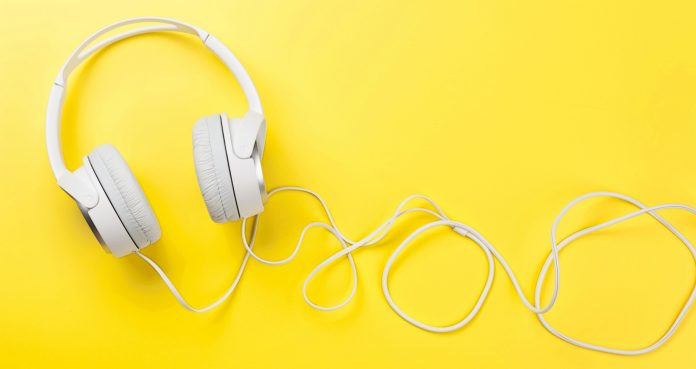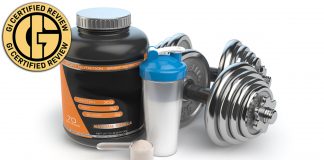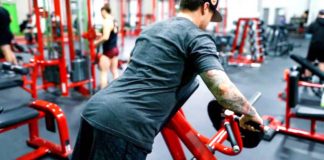
Can your beats boost your gains?
German philosopher Arthur Schopenhauer was quoted as saying ‘music is the food of the soul’ and he also believed that music was like “an unconscious exercise in arithmetic in which the mind does not know it is counting.“ So can beats boost your gains?
Can this ‘unconscious exercise’ be subconsciously performing unlimited and uncounted reps and having an actual effect on your gym gains?
Music and Performance:
Well, believe it or not, music can actually have an effect on your performance level, as by selecting a song with the correct Beats Per MInute range (BPM), can help you keep your motivation levels up and rhythm in sync.
A study by the American Council on Exercise (ACE), Costas Karageorghis, PhD., from London’s Brunel University School of Sport and Education is quoted as saying that, “Music is like is a legal drug for athletes,”
“It can reduce the perception of effort significantly and increase endurance by as much as 15 percent.”
So the additional 15% of effort could equate to an extra 1-2 reps, or even an extra 0.2 miles on the treadmill.
But different types of workout will require different Beats Per MInute (BPM), please refer to the guide below as what BPM best suits the exercise in question:
BPM & Exercise guide:
- Yoga: 60 to 90 BPM
- Warm up: 100 to 140 BPM
- Steady-state cardio: 120 to 140 BPM
- Weightlifting /powerlifting: 130 to 150 BPM
- CrossFit, and HIIT training: 140 to 180 + BPM
- Cool down: 60 to 90 BPM
A study from 2018 found that looked into whether ‘motivational music influenced maximal bench press strength and strength endurance?’
‘The measurements of the experimental group were taken in two different sessions as with music and without music with 1 repetition maximum and number of repetitions to failure with 60% of 1 repetition maximum’ At the end of the study, the group listening to motivational music was found to increase strength endurance statistically by 3.9% however ‘motivational music was not effective on maximal strength (1RM).’
But the study concluded ‘that listening to fast music creates an ergogenic acute effect and it is recommended to use music during strength workout to have a better strength endurance performance.’
Another study investigated whether self-selected music (SSM) or no music improved ‘the mood and performance of athletes performing bench press and squat jump’.
The study went on to conclude that ‘increased performance during an explosive exercise and an altered mood state’ occured ‘when listening to SSM. Therefore, listening to SSM might be beneficial for acute power performance.‘
Sports psychologist, Costas Karageorghis PhD, goes on to say that “there is a sweet spot, in terms of tempo, between 120 and 140 beats per minute,” as “If the music is too fast, it probably won’t help your performance, enjoyment, or endurance.”
So what about Binaural beats? Well firstly what are they?
Binaural beats are when you hear two tones, for best results it would be preferential to do so wearing headphones, the two tones are different in frequencies, (each ear is listening to a different frequency).
And by listening to two different frequencies the illusion of a third sound is created, this third frequency creates a pulse and can affect the mind, this can range from inducing relaxation, improving mental awareness or even improving cognitive function.
From a training and workout perspective the two frequencies I will be focusing on is Beta and Gamma waves.
Beta waves: 13-30 Hz – these waves are associated with concentration, mental alertness and cognitive response, so beta waves keep your mind sharp.
Gamma waves: 30-50 Hz – these waves are associated with problem solving and mental capacity perception. Gamma waves are also said to yield moments of genius when it comes to performance and enhancing your skill set, gamma waves will enhance you from good to great!
A 2018, found that Beta waves promoted concentration and alertness. However, it can also increase anxiety at the higher end of the range.
And Gamma wave frequencies promote the maintenance of arousal while a person is awake.
Another study took 15 young elite soccer players, and they ‘were stimulated for eight weeks during sleep with binaural beats around 2-8 Hz. Once a week after wake-up, participants completed three different questionnaires: a sleep diary, an adjective list for psychophysical and motivational state, and a self-assessment questionnaire for sleep and awakening quality’.
The study went on to conclude that ‘eight weeks of auditory stimulation with binaural beats improved perceived sleep quality and the post-sleep state of athletes.’
And obviously a good night’s rest will ensure a better athletic performance, but athletic performance was not measured in the study in question.
So when it comes to binaural beats there seems to be more research on the effects of binaural beats on sleep, and anxiety related disorders, and apart from pseudo science, there seems to be little to actual evidence that suggests that, unlike Beats Per Minute in regular music, that binaural beats can provide muscle mass, strength or muscle gain, but the evidence does suggest better sleep, less anxiety and better and relaxed moods which could lead to a more optimal performance, which in turn could lead to better gains over time.
So whether the science backs it up or not, and even if it doesn’t actually work, and even if it is a placebo, if binaural beats can provide even the slightest of psychological advantages, then why wouldn’t you want to try it?
References
https://acewebcontent.azureedge.net/certifiednews/images/article/pdfs/MusicStudy.pdf
Johnson, V. (2004). Effect of musical style on spontaneous exercise
performance. Journal of Cardiopulmonary Rehabilitation, 24, 357
Zilonka, E. (1999). Effect of music programming on walking pace. Journal of Cardiopulmonary Rehabilitation, 19, 293
Schwartzmiller, M. (2003). Effects of music tempo on spontaneous cycling performance. Journal of Cardiopulmonary Rehabilitation, 23, 384
Kapingst, A. (2010). Effect of music components on exercise. Journal of Cardiopulmonary Rehabilitation, 30, 272.
https://eric.ed.gov/?id=EJ1180389
https://journals.lww.com/nsca-jscr/Pages/default.aspx?PAPNotFound=true
https://www.ncbi.nlm.nih.gov/pmc/articles/PMC5435671/
https://pubmed.ncbi.nlm.nih.gov/26106802/
https://pubmed.ncbi.nlm.nih.gov/28921722/
https://pubmed.ncbi.nlm.nih.gov/24968586/
https://pubmed.ncbi.nlm.nih.gov/22033366/
https://associationofanaesthetists-publications.onlinelibrary.wiley.com/doi/full/10.1111/j.1365-2044.2005.04287.x
https://www.ncbi.nlm.nih.gov/pmc/articles/PMC3322125/
https://digitalscholarship.unlv.edu/cgi/viewcontent.cgi?article=3661&context=rtds
https://pubmed.ncbi.nlm.nih.gov/29222722/
https://www.ncbi.nlm.nih.gov/pmc/articles/PMC5694826/
https://www.nepjol.info/index.php/AJMS/article/download/21034/21203
https://www.ncbi.nlm.nih.gov/pmc/articles/PMC5486945/#Abs1title
















